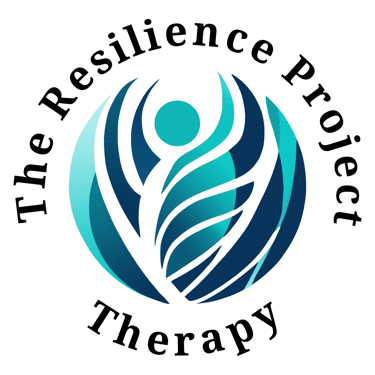Coping Skills: Distraction or Solution?
While coping skills can temporarily relieve stress, some act as mere distractions. Here are some alternative tools to build resilience and address the root causes of emotional challenges.
Christian Gray Hering, LCSW
9/26/20232 min read


Coping skills are often employed to help individuals manage stress and uncomfortable emotions. While some coping skills may provide temporary relief, they can sometimes act as mere distractions. In this blog post, we will explore the concept of coping skills and discuss alternative tools that can be more effective in addressing stressors and emotional challenges.
Coping skills are strategies that individuals use to deal with stressful situations1. They can be categorized into two main types: problem-focused coping and emotion-focused coping1. Problem-focused coping involves taking action to change the situation or remove the stressor1. Emotion-focused coping, on the other hand, focuses on managing and regulating emotions without necessarily changing the external circumstances1.
While coping skills can be helpful in managing stress, it is important to recognize that some coping mechanisms may only provide temporary relief or act as distractions. Distraction techniques, for example, are commonly used as coping skills but may not address the underlying causes of stress or discomfort2. Distractions can keep individuals safe in the moment by preventing unhealthy behaviors or making a feeling easier to cope with in the long run3. However, they may not lead to long-term solutions or personal growth.
Instead of relying solely on coping skills that serve as distractions, it can be beneficial to explore alternative tools that promote personal growth and resilience. Here are some examples of tools that can be more effective in addressing stressors and emotional challenges:
Mindfulness: Mindfulness involves paying attention to the present moment without judgment1. It can help individuals become more aware of their thoughts, emotions, and bodily sensations, allowing them to respond to stressors in a more intentional and constructive manner1.
Cognitive-Behavioral Therapy (CBT): CBT is a therapeutic approach that focuses on identifying and challenging negative thought patterns and behaviors4. It helps individuals develop healthier coping strategies by replacing negative thoughts with more positive and realistic ones4.
Social Support: Seeking support from friends, family, or support groups can provide individuals with a sense of belonging and understanding1. Sharing experiences and emotions with others who have gone through similar challenges can be comforting and validating1.
Physical Activity: Engaging in regular physical activity has been shown to reduce stress, improve mood, and increase overall well-being1. Exercise releases endorphins, which are natural mood-boosting chemicals in the brain1.
Journaling: Writing down thoughts and emotions in a journal can help individuals gain clarity and perspective on their experiences4. It provides an outlet for self-expression and reflection.
These alternative tools focus on addressing the root causes of stress and discomfort rather than providing temporary relief or distractions. By incorporating these tools into your coping strategies, you can develop healthier ways of managing stressors and emotional challenges.
For more information on coping skills and alternative tools, you may find the following websites helpful:
Verywell Mind provides an overview of various coping skills for stress and uncomfortable emotions1.
Cornell University offers information on distraction techniques that can help suppress urges related to self-injury2.
Beauty After Bruises provides a list of 101 distraction techniques categorized based on mental and physical effort required5.
Positive Psychology offers worksheets for adults and youth that focus on different coping mechanisms4.
Remember, while coping skills can be valuable tools in managing stress, it is important to explore alternative approaches that address the underlying causes of stressors and emotional challenges. By incorporating these alternative tools into your coping strategies, you can cultivate personal growth, resilience, and long-term well-being.
Sources:
The Resilience Project Therapy
Mailing
P.O. Box 832182
Richardson, TX 75083
Contacts








